May 19, 2025
Author:Amanda Lyu
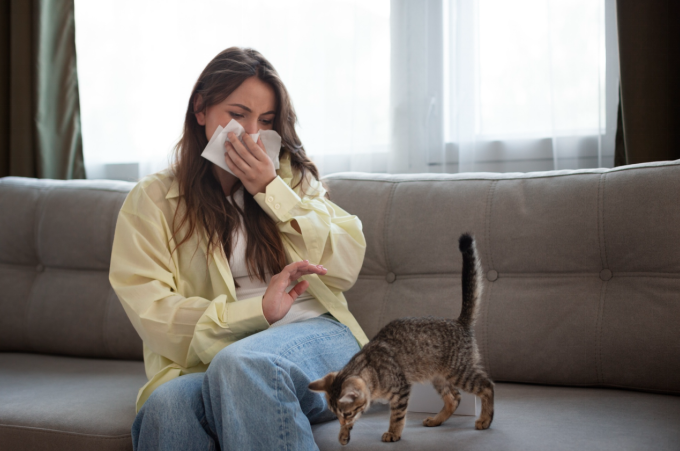
Have you ever walked into a room and paused at the scent? You thought it might be your pet, but you saw no sign of an accident. You know that house smells like cat pee, yet you can’t pin down where it came from. That kind of odor can feel impossible to fix. It can affect your mood, your health, and your sense of comfort. Knowing how to deal with that smell matters. In this article, we will show you how to spot the source, understand why it sticks, and clear it for good. We will cover reasons tied to pets and others that may surprise you. By the end, you will have steps you can take, even if you do not own a cat.
Beyond the bad scent, urine odors can stress your family. They can trigger allergies and irrit airways. Finding the source saves money and spares your nerves.
Cat urine comes from urea, uric acid, ammonia, and other compounds like mercaptans. When urine dries, bacteria break down those chemicals. The breakdown releases a foul scent that grows stronger over time. That is why you may find your house smells like cat pee long after a wet spot dries. You tend to notice it more when humidity rises. Warm air also spreads the scent. Carpets, walls, and wood can trap urine like a sponge and release smell again and again.
Fresh urine often gives a sharp sting, while older stains smell musty. Our nose can detect parts per trillion of ammonia. That explains why you catch a fleeting whiff in one room and then again in another. The scent travels through vents and under doors, and it hides behind baseboards or soaks into rugs and fabrics. A regular cleaner will not break down hard uric acid crystals. You need an enzyme-based cleaner to dissolve those crystals so bacteria can eat them and stop the smell at its source.
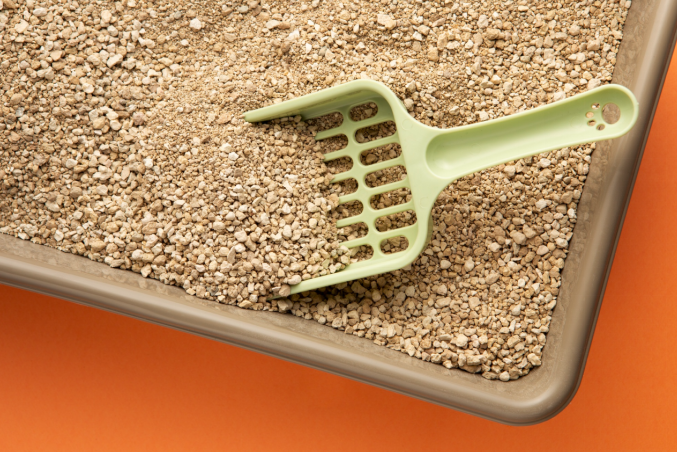
Dirty litter can send odors into the air quickly. If you do not scoop at least once a day, waste sits in the box and breaks down into ammonia. You may think changing the litter weekly is enough, but that may not work for multiple cats. Inexpensive clay blends often let liquid pool at the bottom. You can switch to a clumping formula that seals moisture. Some litters include charcoal or baking soda to control odor. To keep litter where it belongs, consider using a mat outside the box. You can find tips on how to keep litter off the floor.
Proper maintenance helps prevent that lingering scent that makes you notice your house smells like cat pee.
Unneutered cats spray to mark territory. They back up to a wall, raise their tail, and spray small amounts of urine. Even neutered cats may spray when they feel stressed. Stressors include new pets, moves, or loud noises. A sneaky drop outside the box may signal a medical issue. If your cat has a urinary tract infection, it may cause pain and lead to accidents.
Watch for frequent trips to the box with little output. Talk to your vet if you spot blood or see pain. Fixing spraying often starts with neutering or spaying. You can read why castration or sterilization matters for stress relief and health. That step can cut down on the need to mark.
Furniture, corners, and potted plants can hide small spills. A cat may love soft carpets or a dark closet. When humidity changes, those old stains reawaken. You may need to move items and sniff around baseboards and curtains. A UV blacklight can reveal hidden stains. Look under cushions and behind appliances. That hands-on search helps you spot areas you can clean fully.
Mold thrives in damp spots. You may think about pet stains, but a musty odor can come from mold. In poorly ventilated basements and around windows, black mold can grow on paint and fiberglass. After heavy rain, you may smell a wet, sour scent that makes you think a cat got inside. When you detect that your house smells like cat pee, check for ponding water or leaks. A leaking pipe under the sink or a flood drain by the washer can fuel growth. Use a dehumidifier and fix leaks quickly. For more on managing moisture around pet areas, see cat water fountain care.
Rotten food in a hidden spot can mimic urine. If you drop fish or meat bits under a shelf, bacteria can break down proteins into ammonia. The result is a sharp, urine-like odor. Old insulation or vapor barriers in crawl spaces may give off similar smells. Even some houseplants can emit a strong scent when they rot.
Rodent problems can bring urine smells. Mice and rats leave small pee stains. Their urine has high ammonia content. Look for droppings along baseboards and in cupboards. A dead animal in a wall or crawl space can also emit a strong odor. Pests like fleas may live where rodents hide, and their droppings add to the smell. You can learn to spot common health issues in indoor environments to stay safe.
Use a good UV lamp in a dark room. Turn off all lights and close curtains. Run the light over carpets, baseboards, and fabric. Old urine stains will glow under UV. You will see spots that look yellow or green. That shows you where to apply your cleaner.
Check drains and vents. Run water in each sink and shower to fill traps. Open crawl space doors and smell near floor vents. Listen for drip or leak sounds. Inspect your HVAC unit and fridge drain pans. If you suspect a refrigerant leak, call a pro. Slide a thin mirror or phone under cabinets and vents to spot hidden puddles or mold.
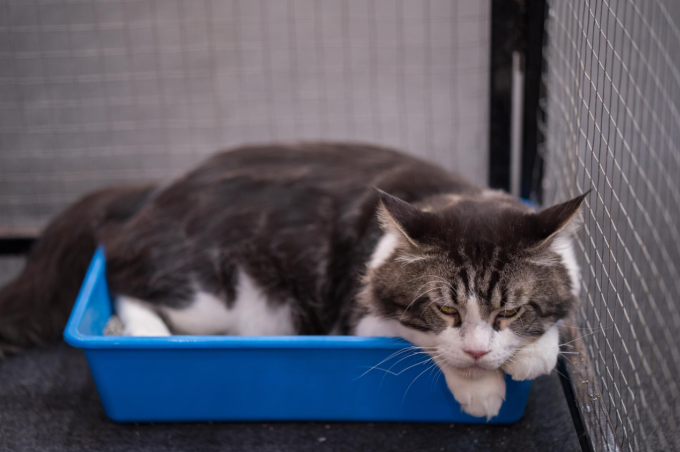
When you clean cat urine fast, you cut the chance that your house smells like cat pee again. First, blot fresh urine with paper towels. Wear gloves and press down—do not rub. Next, use an enzyme cleaner that breaks down uric acid. Let the cleaner sit for the time listed, then wipe up any residue. For hard floors, mix one part vinegar to one part water.
Spray, sprinkle baking soda, let it dry, then vacuum. Do not use ammonia-based cleaners—they can make cats mark again. If you have a stress-free feeding routine, you may notice fewer box accidents. But you still need to clean any mess promptly. After cleaning, open windows to air out the room.
For mold, hire a pro if you see black spots or damp walls. They will remove the mold safely. To fix sewer gas, pour water in all drains and vents weekly to refill the trap seal. For freon leaks, turn off the system and call your HVAC tech. If you dropped food, check under appliances and toss any spoiled bits. Replace old insulation or vapor barriers to cut off leftover smells.
Open windows and doors when weather allows. Run ceiling fans and box fans to move air. A good purifier with a charcoal or HEPA filter will capture odor particles. A dehumidifier keeps moisture under control, stopping mold and lingering scents.
Rearrange furniture to let air flow freely. Replace furnace filters every three months. In a cat-friendly home, consider adding automated pet feeders to schedule feeds. Regular feeding times can cut stress and reduce off-box peeing. Keep your pet hydrated with cat hydration hacks. A well-hydrated cat has a lower risk of urinary issues that lead to smell.
Keep litter clean. Scoop daily and toss old litter each week. Wash the box monthly with mild soap. A clean box stops odor. Use litters with charcoal or baking soda. Schedule feeds with a stress-free routine and get a pet water fountain instead of free-feeding. That cuts down on accidents. If you plan to travel with your cat, check your cabin for stray litter or hair. That helps you keep smells out of your car and home.
Check plumbing traps and vents every few months. Run water in unused drains. Change HVAC filters on schedule. Fix leaks right away. Keep humidity below 50%. Clean drains and garbage disposals. Seal cracks that pests could use. Store food in tight containers. Inspect walls and floors for signs of moisture or pests. A well-kept home will not let odors linger.
Some odors resist DIY fixes. If urine joints hide too deeply or mold grows in hard-to-reach spots, call a pro. A pet odor removal service uses UV tools and safe cleaners to treat stains and protect surfaces. Mold remediation teams can remove toxic growth. HVAC technicians handle freon leaks. Plumbers clear vents and fix dry traps. Rates vary by service—general cleaning runs $30–$50 per hour, while mold or HVAC jobs cost more. Choose a team that uses pet-safe methods and offers a satisfaction guarantee.
Finding the source of a urine odor can feel tough. Your smell might come from a cat’s accident or a surprise like mold or a gas leak. Knowing the science of cat urine and using tools like blacklights and enzyme cleaners will help you clean the problem zone. Keep a stress-free feeding pattern and good hydration in place. Check your home for leaks, pests, or trapped moisture. If the smell still lingers, bring in a professional. With care and the right steps, you can stop that house smells like cat pee issue for good. A fresh home makes life better for you, your guests, and your pets. Start today by sniffing out the source and tackling it with confidence.
Label:
Popular Post

What to Feed a Sick Dog With No Appetite? [2025 Guide]
May 16, 2023
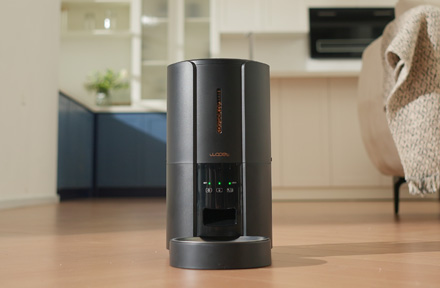
Troubleshooting Common Issues with Automatic Pet Feeders: Tips & Tricks for Pet Owners
Oct 26, 2023

Why Does My Cat Cough After Drinking Water? 8 Potential Reasons
Mar 13, 2023
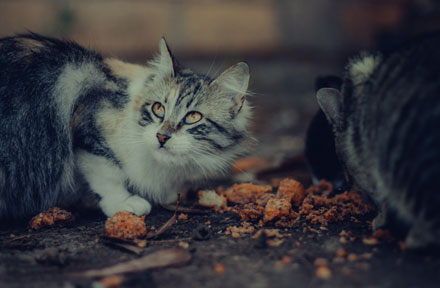
My Cat Only Eats A Little at A Time - What to Do?
Feb 27, 2023
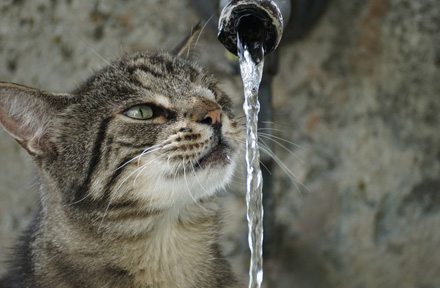
Why is My Cat Throwing up Water? Top 5 Causes Here
Feb 08, 2023
$99.99
$129.99
Copyright © 2025 WOPET. All Rights Reserved.